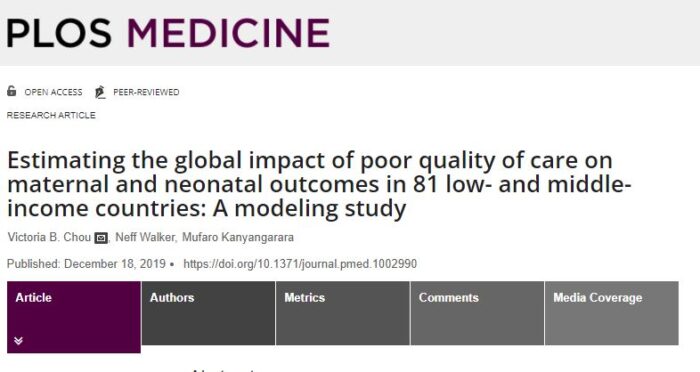
In low-resource settings where disease burdens remain high and many health facilities lack essentials such as drugs or commodities, functional equipment, and trained personnel, poor quality of care often results and the impact can be profound. In this paper, we systematically quantify the potential gain of addressing quality of care globally using country-level data about antenatal, childbirth, and postnatal care interventions.
The authors of this paper systematically quantify the potential gain of addressing quality of care globally using country-level data about antenatal, childbirth, and postnatal care interventions. They created models to project health outcomes if quality of care was addressed in a representative sample of 81 low- and middle-income countries (LMICs). Findings indicated that if health systems could effectively deliver a subset of evidence-based interventions to women and newborns who are already seeking care, there would be an estimated 28% decrease in maternal deaths, 28% decrease in neonatal deaths, and 22% fewer stillbirths compared to no change or improvement in quality of care. Interventions provided at or around the time of childbirth were most critical (64% of the estimated impact overall). This suggests that efforts to close the quality gap would still produce substantial benefits at current levels of access or utilization.
